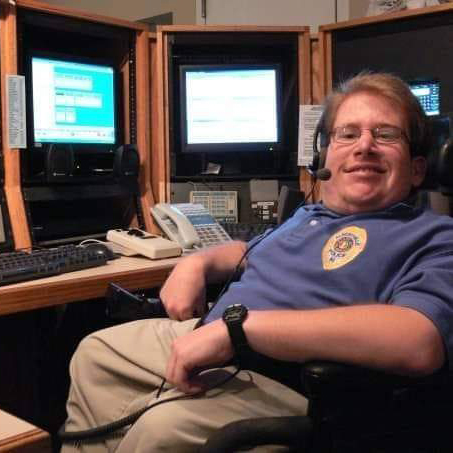 October marks Spina Bifida Awareness Month , and the UAB Departments of Neurosurgery, Urology and Physical Medicine and Rehabilitation are sharing stories and experiences that challenge us to raise more awareness and support for those living with Spina Bifida.
October marks Spina Bifida Awareness Month , and the UAB Departments of Neurosurgery, Urology and Physical Medicine and Rehabilitation are sharing stories and experiences that challenge us to raise more awareness and support for those living with Spina Bifida.
This week, Zac Cannady shares more about his experiences with Spina Bifida and the transition from pediatric to adult care.
What has your journey with spina bifida been like?
“Well, I was born in May of 1986 in Gadsden, AL with the most severe form of Spina Bifida: myelomeningocele. Since my spine was open, my back was closed in surgery, and I had a shunt placed, which is small hollow tube that will help drain the fluid from my brain and protect it from building too much pressure. Thankfully, and knock on wood, I have had no issues with the shunt. Most of my issues lately have been kidney stuff, like kidney stones.
I live in Albertville, AL with both of my parents and have an overhead lift system that transports me around the bedroom. I went through school as normal as possible and graduated Albertville High School in 2004. My teachers were great and understanding. I did encounter some tricky kids, but most kids were nice. Everyone was good about helping me get from place to place as well as scheduling my classes since I took a little bit longer to get to each of my classes. I had a manual wheelchair up through 8th grade and got a power chair in high school.
Then, I graduated from Snead State with an associate’s degree in criminal justice and began working as a police dispatcher, though I only worked one year due to the stress of the job on my health. I had gotten bit by the public safety bug when I met Richard Rutlege, the police captain of Albertville at the time. In middle and high school, I would patrol with him some Saturdays.
I now have a ton of hobbies, one of which includes collecting public safety uniform patches from all over the world. I have one sister who is three years younger than me, and I enjoy being an uncle. My nieces and nephews love my chair and riding around with me.”
What is a common misconception about those with spina bifida you want to dispel?
“Not all forms of spina bifida are severe and no case of spina bifida is the same. I know a few people with spina bifida, including my aunt. She has occulta which is a very mild form– her spine is turned slightly, but she doesn’t even walk with a limp. Another friend of mine has braces, and he gets around in a wheelchair. So, spina bifida does not look the same for everyone.
Also, you don’t know what people have just by looking at them. It is important to give those around us grace, and accept that some individuals may have invisible handicaps.”
Do you have advice for others with spina bifida who may be transitioning into adulthood?
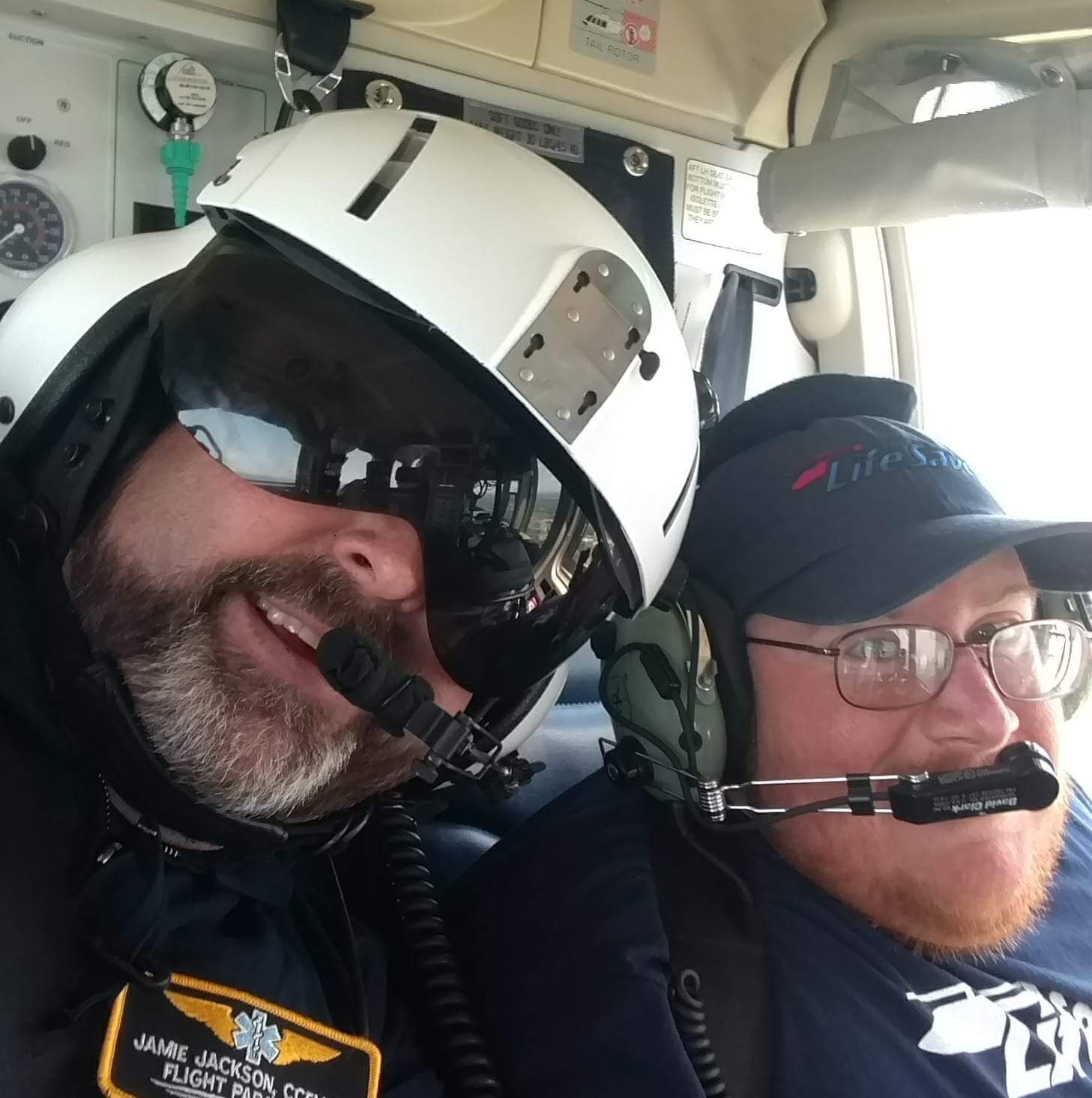 “Absolutely. I would tell others to just keep living their life. No matter what, don’t stop or give up. Life continues on, and you can make your life what you want it to be.
“Absolutely. I would tell others to just keep living their life. No matter what, don’t stop or give up. Life continues on, and you can make your life what you want it to be.
Luckily, my mother and father have helped with my daily healthcare, so I have had the ability to focus on school, work, hobbies, and other fulfilling things in life. It’s important to lean on your caregivers and allow them to help you, but you should also do what you can– don’t just give up. You may be able to help others in the future in a similar or more difficult situation and life always has the opportunity to get better, so just keep going.
It’s also important to stay moving in the ways that you can. I recently completed a 48-week intensive virtual workout through the Lakeshore Foundation. Dr. Danielle Powell recommended that I do the workout, and I am so glad that I did! Otherwise, I enjoy swimming and going to the gym to stay active. However, I quit the gym due to COVID.
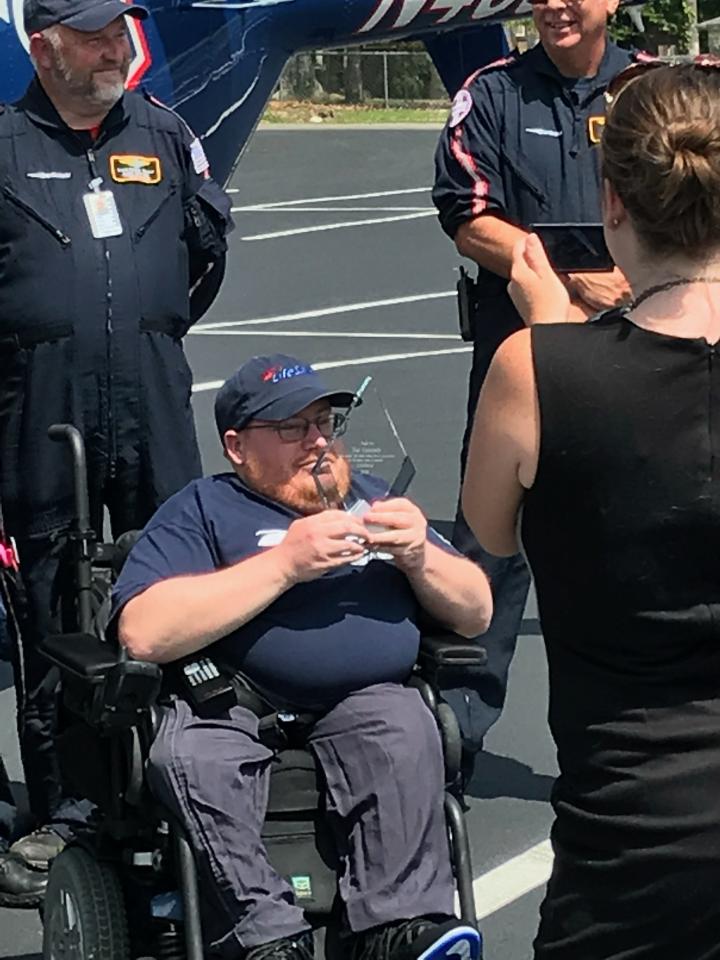 Even though I have the most severe form of Spina Bifida, I have been able to go deer hunting, ride and march in parades with my family, do choir, band, and visit the beach, Gatlinburg, and Dollywood often. I’ve even ridden in a helicopter.
Even though I have the most severe form of Spina Bifida, I have been able to go deer hunting, ride and march in parades with my family, do choir, band, and visit the beach, Gatlinburg, and Dollywood often. I’ve even ridden in a helicopter.
Now, although I am no longer a dispatcher, I still listen to the police scanner and give my former colleagues and friends a heads up when I hear of a big happening that might affect them. I organize an annual event called the Community Helper Week, where EMS, police, and firefighters attend at my church. At the 2018 event, they surprised me by having it turn into an appreciation day for me. They had a lifesaver patch made for me as well as wings, but the only stipulation was that I had to fly in the medi vac helicopter. So, I went up and flew. My dad even wrote a book about his experience as my caregiver, and we like to give it to those who need encouragement. I hope you will check it out.”
How can family and friends be an advocate, especially during the month of October?
“Social media is a great tool to advocate. I always change my profile to the yellow ribbon when I find one I like. It’s also important to take time to learn about Spina Bifida and how it affects everyone. We have the internet at our fingertips, so I encourage everyone to use it to learn more– if it’s out there, you can learn it. Finally, it’s important to be supportive of people with spina bifida and listen to their stories.”
How has the UAB Transitional Spina Bifida Clinic impacted you?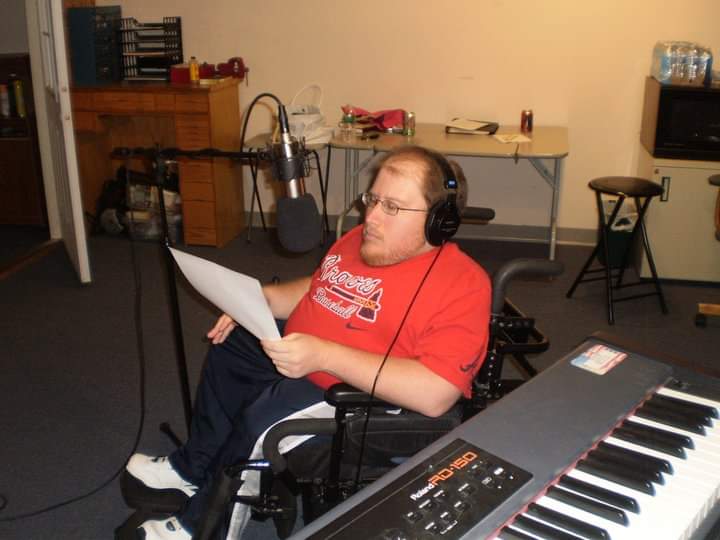
“Dr. Danielle Powell, my rehab doctor, and the whole clinic team is wonderful. Dr. Powell has been really helpful with the new wheelchair I got in February. She was great about that process and is always so bubbly and caring. I also see Dr. Tracy Wilson in Urology as well and am grateful for her care.
The transition from pediatric to adult care was tough, especially saying goodbye to Dr. Joseph. Overall, I am super thankful for the UAB adult spina bifida clinic and their willingness to be there for me during that transition. It has been a great experience.”
Anything that you want to add?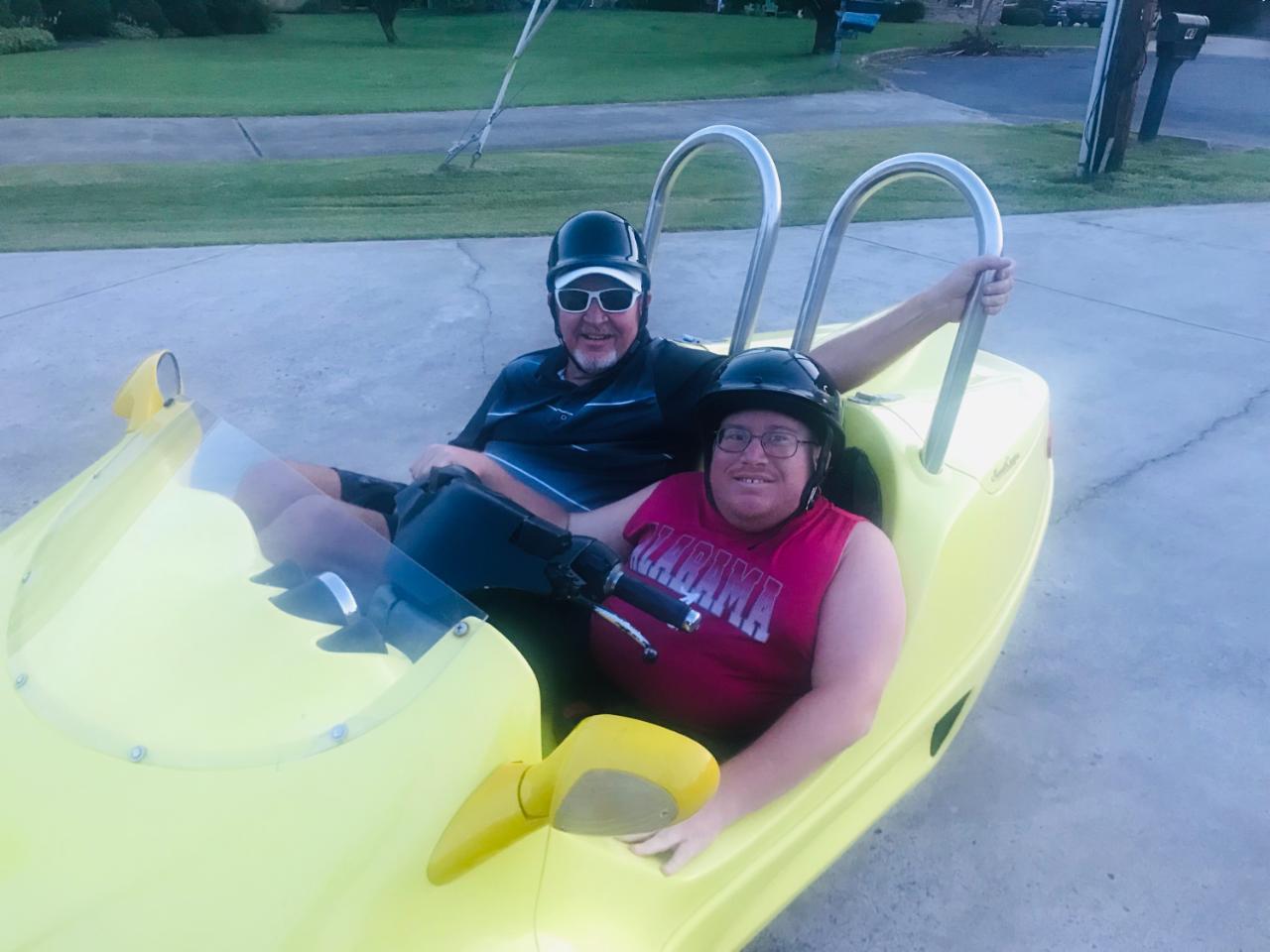
"I want to thank Dr. David Joseph for his outstanding care while I was at Children’s of Alabama in the pediatric spina bifida program until 2015.
In 2010, I got sick from a urinary tract infection, and I actually went septic. I was at a rural hospital, and I got transferred to Children’s of Alabama. Dr. David Joseph gave me great care during that time. I went straight to the trauma unit when I got there, and my CO2 was so high they had to bag me at one point– I was even on the ventilator. That episode has left me with only about 30-40 percent lung capacity. But, I improved and have been on a bipap ever since then, which I am used to now.
I’m grateful for the entire spina bifida team at both Children’s of Alabama and UAB. They have done, and continue to do, a wonderful job showing compassionate, tailored care."